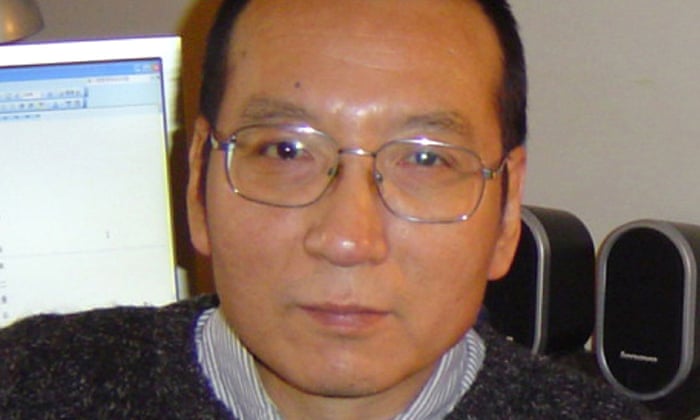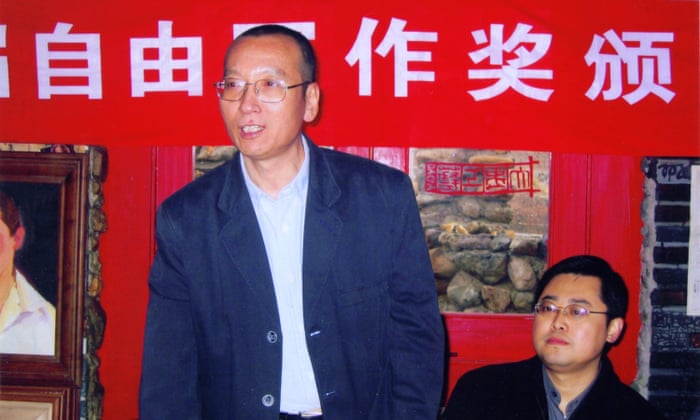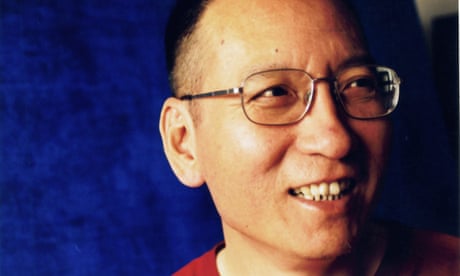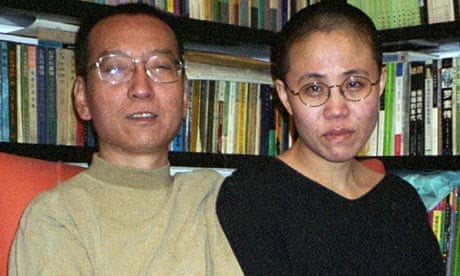Reuters

Liu Xiaobo was not transferred to a facility where he could receive adequate medical treatment before he became terminally ill.

Oslo -- The Chinese government bears a heavy responsibility for the death of Nobel Peace Prize laureate Liu Xiaobo, the leader of the Norwegian Nobel Committee, which awards the prize, said on Thursday.
“We find it deeply disturbing that Liu Xiaobo was not transferred to a facility where he could receive adequate medical treatment before he became terminally ill,” said Berit Reiss-Andersen.
“The Chinese Government bears a heavy responsibility for his premature death,” she told Reuters in an emailed statement.
Norway's Nobel panel blames free world
Norway's Nobel Committee has mourned the death of Peace Prize laureate Liu Xiaobo and leveled harsh criticism at the "free world'' for its "hesitant, belated reactions'' to his serious illness and imprisonment.
The organization's chairwoman, Berit Reiss-Andersen, says the Chinese government "bears a heavy responsibility for his premature death.''
Liu was awarded the Nobel Peace Prize in 2010 but was unable to attend the award ceremony because he had been sentenced to prison by Chinese officials for allegedly inciting subversion.
Reiss-Andersen said in a statement that in the committee's view, "he had not committed any criminal act ... his trial and imprisonment were unjust.''
She said, "It is a sad and disturbing fact that the representatives of the free world, who themselves hold democracy and human rights in high regard, are less willing to stand up for those rights for the benefit of others.''
Liu Xiaobo was not transferred to a facility where he could receive adequate medical treatment before he became terminally ill.
Berit Reiss-Andersen wrote in an email that the Chinese government bore heavy responsibility for Xiaobo's death.
Oslo -- The Chinese government bears a heavy responsibility for the death of Nobel Peace Prize laureate Liu Xiaobo, the leader of the Norwegian Nobel Committee, which awards the prize, said on Thursday.
“We find it deeply disturbing that Liu Xiaobo was not transferred to a facility where he could receive adequate medical treatment before he became terminally ill,” said Berit Reiss-Andersen.
“The Chinese Government bears a heavy responsibility for his premature death,” she told Reuters in an emailed statement.
Norway's Nobel panel blames free world
Norway's Nobel Committee has mourned the death of Peace Prize laureate Liu Xiaobo and leveled harsh criticism at the "free world'' for its "hesitant, belated reactions'' to his serious illness and imprisonment.
The organization's chairwoman, Berit Reiss-Andersen, says the Chinese government "bears a heavy responsibility for his premature death.''
Liu was awarded the Nobel Peace Prize in 2010 but was unable to attend the award ceremony because he had been sentenced to prison by Chinese officials for allegedly inciting subversion.
Reiss-Andersen said in a statement that in the committee's view, "he had not committed any criminal act ... his trial and imprisonment were unjust.''
She said, "It is a sad and disturbing fact that the representatives of the free world, who themselves hold democracy and human rights in high regard, are less willing to stand up for those rights for the benefit of others.''




